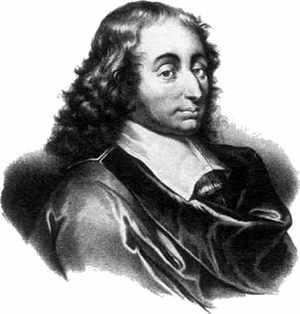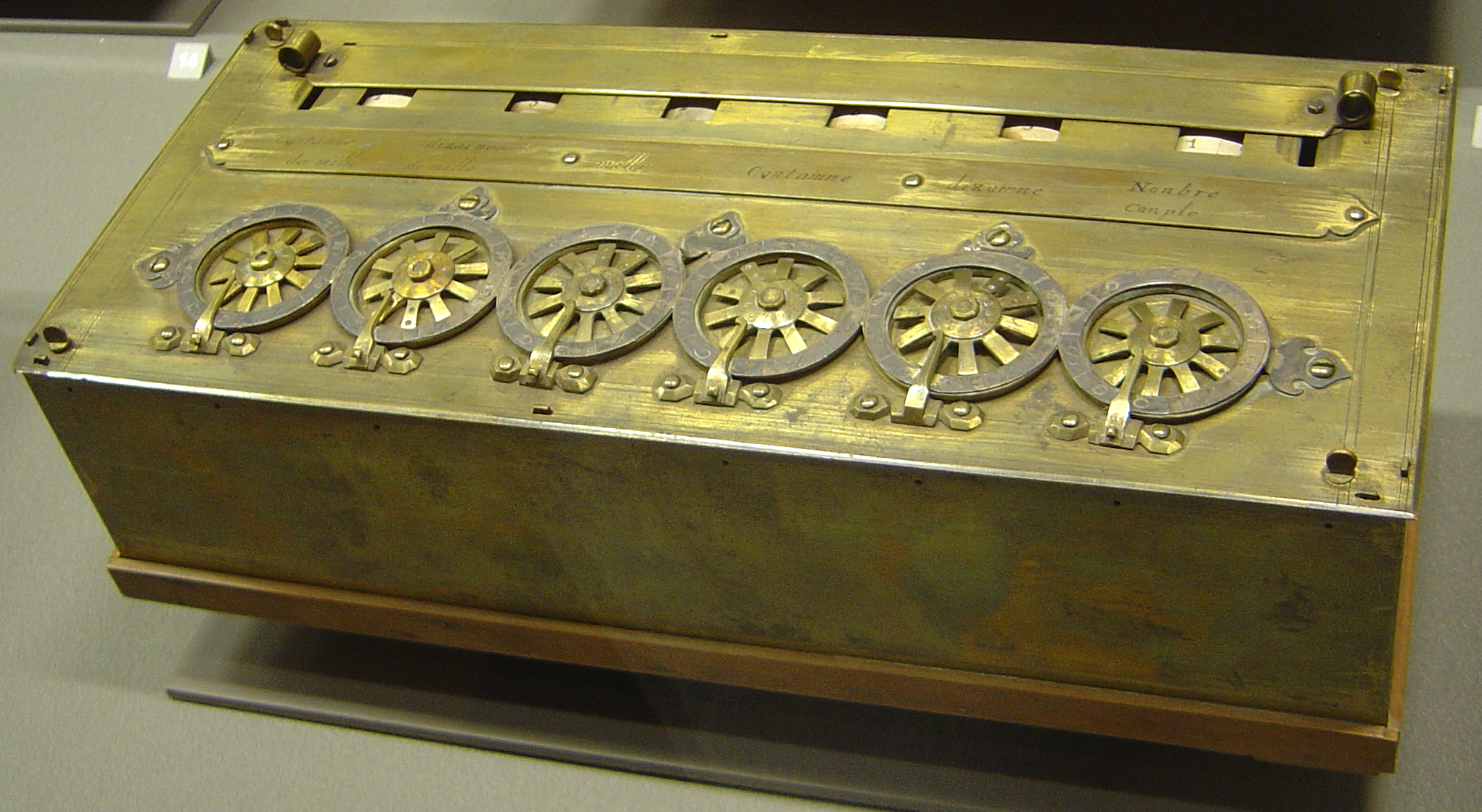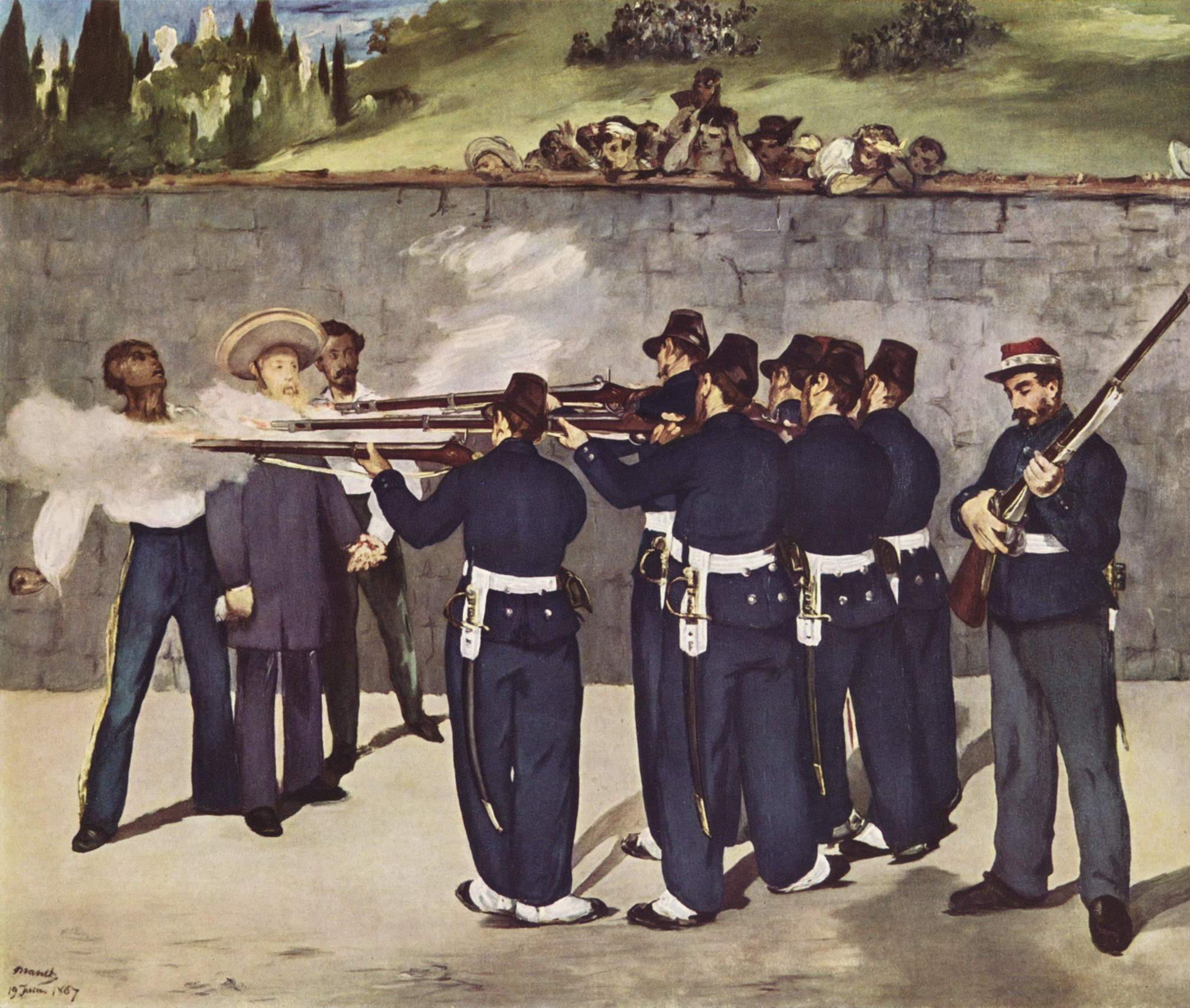Today in History:
June 19, 1312 -
Piers Gaveston, close personal friend of King Edward II of England, is beheaded after he attempted to return to Edward's side, having been banished for being too close a personal friend.

After succession to king, Edward appointed Gaveston as Earl of Cornwall for no other reason than being his close personal friend.
And for his troubles, Edward II ends his day with a serious pain in his ass.
June 19, 1623 -
Blaise Pascal was born in France on this date (which worked out extremely well for him as he wanted to grow up to be French.)

At the age of 17 he wrote a paper entitled Essay on Conic Sections, which quickly became the best-selling paper on conic sections in European history and eventually inspired the classic French noir film, Death by Conic Section.
By the age of 22 Mr. Pascal had invented a calculator. Unfortunately he could not invent the battery, so he turned to religion.

And he meant to get around to it right away, but in 1647 he ended up proving the existence of a vacuum. The famous French philosopher Rene Descartes visited Pascal, inspected his vacuum, and bemoaned its lack of attachable hoses. This caused an epistemological split that has endured to the present day.
("The more I see of men," Pascal observed at about this time, "the better I like my dog." This was a famous quotation and can be found on many greeting cards.)
In 1653 he discovered Pascal's Law of Pressure. A year later he was involved in a carriage accident that reminded him he had turned to religion. He turned back to it.
He began work on his famous Pensées ("Blather") in 1656 and worked on it for three years. In the book, Pascal proved that if God didn't exist then believing in Him wouldn't hurt, whereas if He did exist, not believing would hurt like Hell.
It has been observed that if Pascal was wrong, not reading his book wouldn't hurt, and if he was right it wouldn't hurt either.
When he was 39 a malignant growth in his stomach spread to his brain and he died horribly, proving that unbearable pain is unbearable pain whatever you think of God or philosophy.
June 19, 1867 -
Emperor Maximilian of Mexico (Brian Aherne), unwitting stooge for Napoleon III (Claude Rains), is executed by firing squad. Although he bribed the seven riflemen to not shoot him in the head, one did anyway.

Bette Davis somehow figures into this as the Mad Empress Charlotta was just snapped when she returned to France to get help for her beleaguered husband. She lived in her private mad world for over 60 years, dying in the mid twenties of the next century.
So much for the privileges afforded royalty.
June 19, 1934 -
The Federal Communications Commission, perhaps the most wicked body of do-gooders ever to exist in the United States, is created.

These are the clowns that perfected the fine art of capricious and arbitrary.
June 19, 1953 -
Atomic spies Julius and Ethel Rosenberg are electrocuted at Sing-Sing Prison, becoming the first civilians ever executed for espionage in American history. Five jolts of electricity were required to kill Ethel. Ethel did not succumb immediately and was subjected to two more electrical charges before being pronounced dead. The chair was designed for a man of average size; and Ethel Rosenberg was a petite woman: this discrepancy resulted, it is claimed, in the electrodes fitting poorly and making poor electrical contact. Eyewitness testimony (as given by a newsreel report featured in The Atomic Cafe) describes smoke rising from her head. That must have been a pretty sight.
While her husband Julius was on the Soviet payroll, according to recently released archives, is now clear that Ethel had no involvement in the espionage ring. For that matter, it is unclear how much Julius actually assisted the Soviet atomic bomb effort.
So much for American Justice.
June 19, 1982 -
Roberto Calvi, chairman of Banco Ambrosiano, is found hanging from Blackfriar's Bridge in London. His death is initially ruled a suicide, though it is quite obviously murder; that assessment is later overturned. Calvi may have been killed because of his involvement in the laundering of drug money through the Vatican Bank. This is part of the back story of Godfather III.

Roberto Calvi's life was insured for $10 million with Unione Italiana, and attempts by his family to obtain a payout resulted in litigation. Following the forensic report of 2002 which established that Calvi was murdered, the policy was finally paid out, although around half of the sum was paid to creditors of the Calvi family who had incurred considerable costs during their attempts to establish that Calvi had been murdered.
So much for Italian justice.
Now I'm not suggesting that the Mafia (which does exist) go out and hang Bernie Madoff - all I'm saying is keep an eye on the Third Avenue Bridge.
And so it goes.
2 comments:
Hello,
I'm a student who wishes to use your picture of Blaise Pascal's calculator for a school project. May I have your permission to print and use the picture for my project?
Please Reply
Thank you
I'm sure you've already done so but be my guest
Post a Comment